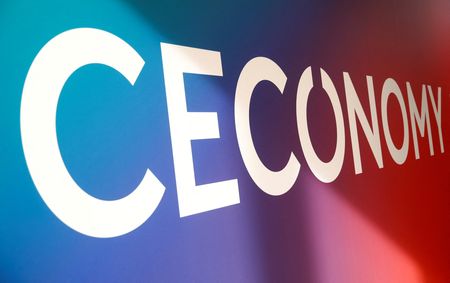(Reuters) -German flavour and fragrance maker Symrise on Wednesday lowered its organic sales forecast for 2025, citing more cautious consumer demand.
Symrise, whose fragrances go into the perfumes of French luxury majors LVMH and Kering, expects organic sales growth this year of 3% to 5%, down from 5-7% previously, and a core profit (EBITDA) margin of around 21.5%, after guiding for around 21% in its original forecast.
“We are observing a shift in global market demand, with heightened consumer caution across certain sectors,” CEO Jean-Yves Parisot said in a statement. He added that “self-help initiatives” were expected to boost the EBITDA margin.
The company aims to achieve recurring cost savings of 40 million euros ($46.2 million) in 2025 through efficiency improvements, of which 20 million had already been reached in the first half of the year, it said.
Revenue for the January-June period fell 0.5% on a reported basis to 2.55 billion euros, below the 2.60 billion euros analysts polled by Vara Research had forecasted.
Organic sales, which exclude currency exchange effects, grew 3.1% in the same period.
Symrise’s Swiss rival Givaudan also reported slower than expected quarterly organic sales growth last week, fuelling concerns over moderating demand.
“U.S. demand has simply weakened over the past few months,” Symrise Chief Financial Officer Olaf Klinger said during a conference call, adding that the pet nutrition and UV filter sectors were particularly affected.
Addressing the issue of U.S. tariffs, Klinger stated that the company had already applied price increases in select cases but retains additional strategies to mitigate the impact.
“We have the opportunity to relocate products if the tariff situation does not allow continued delivery from certain situations,” he said. “We also have reformulation options, meaning sourcing raw materials from other regions to ultimately manage tariff situations.”
($1 = 0.8656 euros)
(Reporting by Antonis Pothitos in Gdansk; Additional reporting by Anastasiia Kozlova; Editing by Milla Nissi-Prussak and Matt Scuffham)








